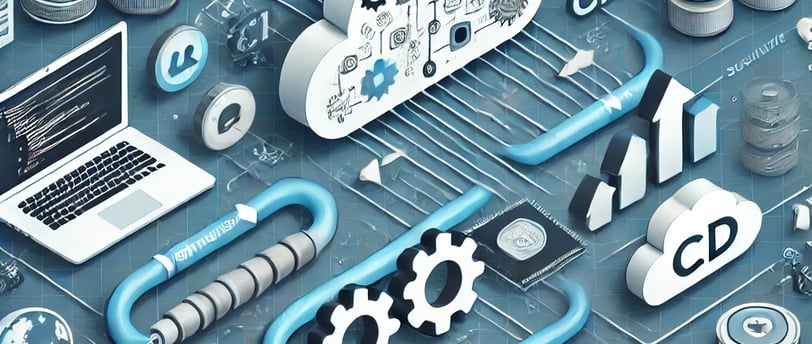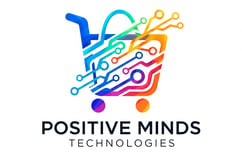New-Age IT Technologies: Revolutionizing Software Development
1/6/20253 min read


The IT industry is experiencing a seismic shift as new-age technologies redefine how software is written, developed, and deployed. Emerging innovations such as Artificial Intelligence (AI), Cloud Computing, DevOps, Low-Code/No-Code Platforms, Blockchain, and Quantum Computing are streamlining software development, enhancing efficiency, and transforming traditional methodologies.
In this blog, we will deep dive into each of these technologies and explore how they are revolutionizing the software development landscape.
1. Artificial Intelligence (AI) & Machine Learning (ML): Automating and Enhancing Development
AI and ML are no longer just buzzwords—they are actively shaping the future of software engineering.
🔹 How AI is Changing Software Development:
AI-Assisted Coding: Tools like GitHub Copilot and OpenAI’s ChatGPT can suggest, generate, and even debug code, reducing development time.
Automated Testing: AI-based testing platforms detect anomalies, optimize test cases, and automate bug-fixing.
Intelligent Code Review: AI-powered tools analyze and suggest improvements in code quality, security, and efficiency.
Predictive Analytics: AI helps teams analyze past performance to predict potential software failures before deployment.
Real-World Example:
Google’s DeepMind is working on AI-driven coding models that can optimize code for better efficiency and security, reducing developer workload and errors.
2. Cloud Computing: Infinite Scalability & Serverless Development
Cloud computing has made software development more flexible, cost-efficient, and scalable than ever before.
🔹 Key Advancements in Cloud Development:
Serverless Computing: Platforms like AWS Lambda, Azure Functions, and Google Cloud Functions allow developers to write code without worrying about infrastructure management.
Containerization: Technologies like Docker and Kubernetes enable microservices-based architectures, improving scalability and portability.
Cloud-Based Dev Environments: Tools like GitHub Codespaces and AWS Cloud9 provide cloud-hosted development environments, making remote collaboration seamless.
Impact on Software Development:
Developers can now focus solely on writing code while cloud providers handle infrastructure, leading to faster and more efficient software releases.
3. DevOps & GitOps: The Foundation of Continuous Delivery
DevOps has revolutionized software development by integrating development (Dev) and IT operations (Ops) for faster, more reliable software releases.
🔹 Modern DevOps Trends:
CI/CD Pipelines: Automated Continuous Integration & Continuous Deployment (CI/CD) processes enable frequent releases with minimal human intervention.
Infrastructure as Code (IaC): Tools like Terraform and Ansible allow developers to define infrastructure through code, making deployments consistent and scalable.
Observability & Monitoring: Advanced logging, tracing, and monitoring tools (e.g., Prometheus, Grafana) provide real-time visibility into system health.
How DevOps is Reshaping Software Development:
Eliminates manual deployment errors
Enables faster feature releases
Improves software reliability and security
4. Low-Code/No-Code Platforms: Empowering Citizen Developers
The emergence of Low-Code and No-Code (LCNC) platforms is democratizing software development, allowing non-programmers to build applications with minimal coding knowledge.
🔹 Popular LCNC Platforms:
Low-Code: OutSystems, Mendix, Microsoft Power Apps
No-Code: Bubble, Zapier, Webflow
How LCNC is Disrupting Traditional Software Development:
Reduces development time by 70%
Enables business users to create apps without IT dependency
Enhances innovation by allowing rapid prototyping
While LCNC platforms cannot replace full-fledged software engineering, they significantly accelerate the creation of internal business apps, MVPs, and workflow automation tools.
5. Blockchain: The Future of Secure and Decentralized Applications
Blockchain technology is revolutionizing industries beyond cryptocurrency, providing tamper-proof and decentralized solutions for software applications.
🔹 Blockchain’s Role in Modern Software Development:
Smart Contracts: Self-executing contracts (Ethereum, Hyperledger) automate transactions without intermediaries.
Decentralized Applications (DApps): Applications running on blockchain networks remove the need for central authority (e.g., DeFi, NFT platforms).
Enhanced Security: Blockchain ensures data integrity, transparency, and immutability, reducing fraud risks.
Use Case:
Supply chain management companies use blockchain to provide end-to-end product traceability, ensuring authenticity and preventing counterfeiting.
6. Quantum Computing: The Next Frontier in Software Development
Quantum computing, though still in its early stages, promises exponential computing power by leveraging quantum mechanics principles.
🔹 Impact on Software Development:
Superfast Computations: Quantum computers can solve complex problems millions of times faster than classical computers.
Next-Gen Cryptography: Quantum-resistant encryption methods will enhance cybersecurity.
AI & ML Acceleration: Quantum AI will train machine learning models at unprecedented speeds.
Challenges & Future Prospects:
Requires specialized quantum programming languages (e.g., Q#, Qiskit).
Hardware limitations make widespread adoption years away.
However, companies like Google, IBM, and Microsoft are heavily investing in quantum research, indicating its potential to redefine computing as we know it.
Conclusion: The Future of Software Development
The convergence of AI, Cloud Computing, DevOps, Low-Code, Blockchain, and Quantum Computing is reshaping how software is developed and deployed.
Key Takeaways:
✅ AI & ML are automating coding and testing processes.
✅ Cloud & Serverless Computing are making development faster and more scalable.
✅ DevOps & CI/CD ensure seamless software delivery.
✅ Low-Code/No-Code democratizes application development.
✅ Blockchain is enhancing security and decentralization.
✅ Quantum Computing will redefine the limits of computation.
To stay ahead, developers and IT leaders must adapt, upskill, and embrace these new-age technologies. The future of software development is automated, intelligent, and limitless.
Contacts
+91 (040) 3572 7754
reachus@positiveminds.tech


